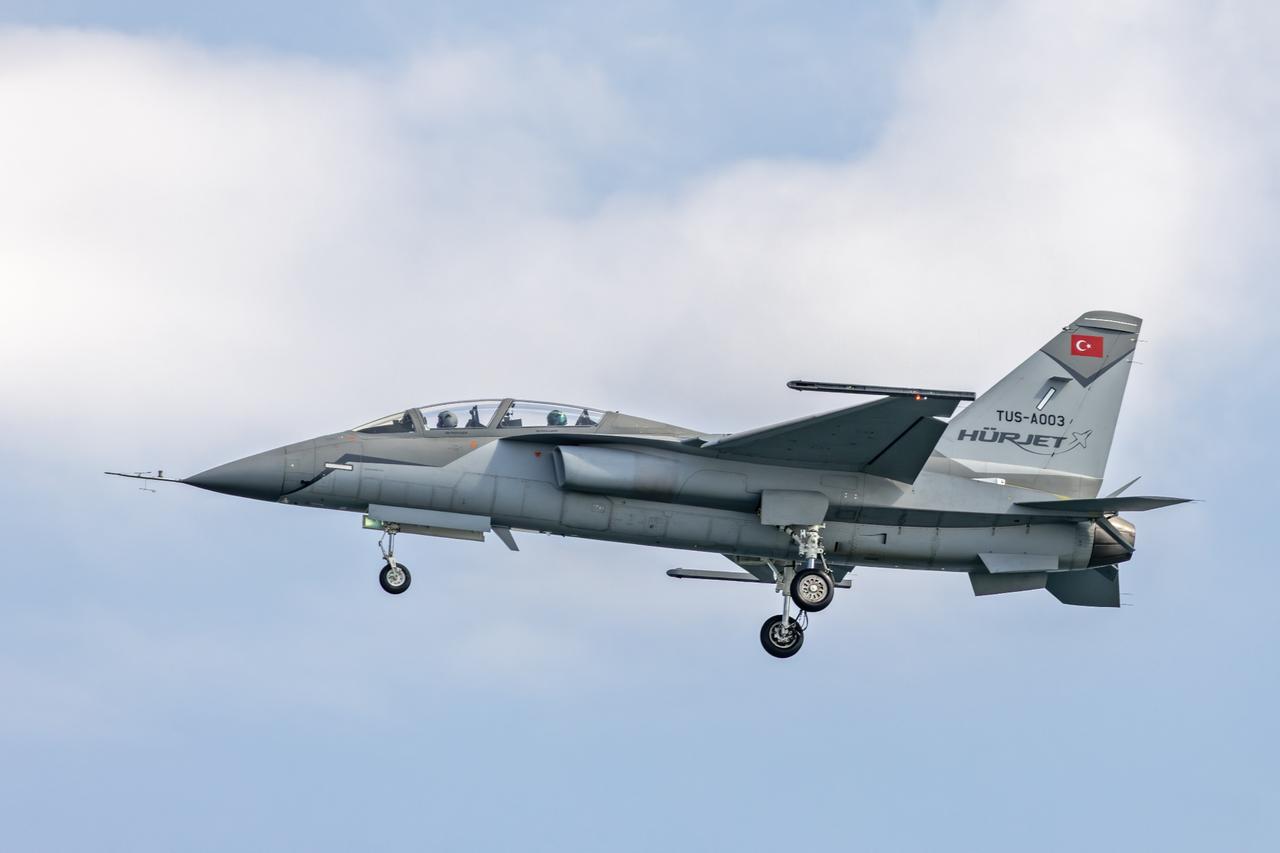
Turkish Aerospace Industries (TAI) and Airbus signed a cooperation agreement at the International Defense Industry Fair (IDEF) 2025 in Istanbul to accelerate the export of Türkiye’s Hurjet advanced jet trainer aircraft to Spain.
The agreement formalizes the partnership between TAI and Airbus for Spain’s jet trainer procurement and outlines the role of both companies in the project.
Under the agreement, up to 30 Hurjet aircraft will be delivered to the Spanish Air Force, with final contracts expected to be signed by the end of 2025. Deliveries are scheduled to begin in 2028.
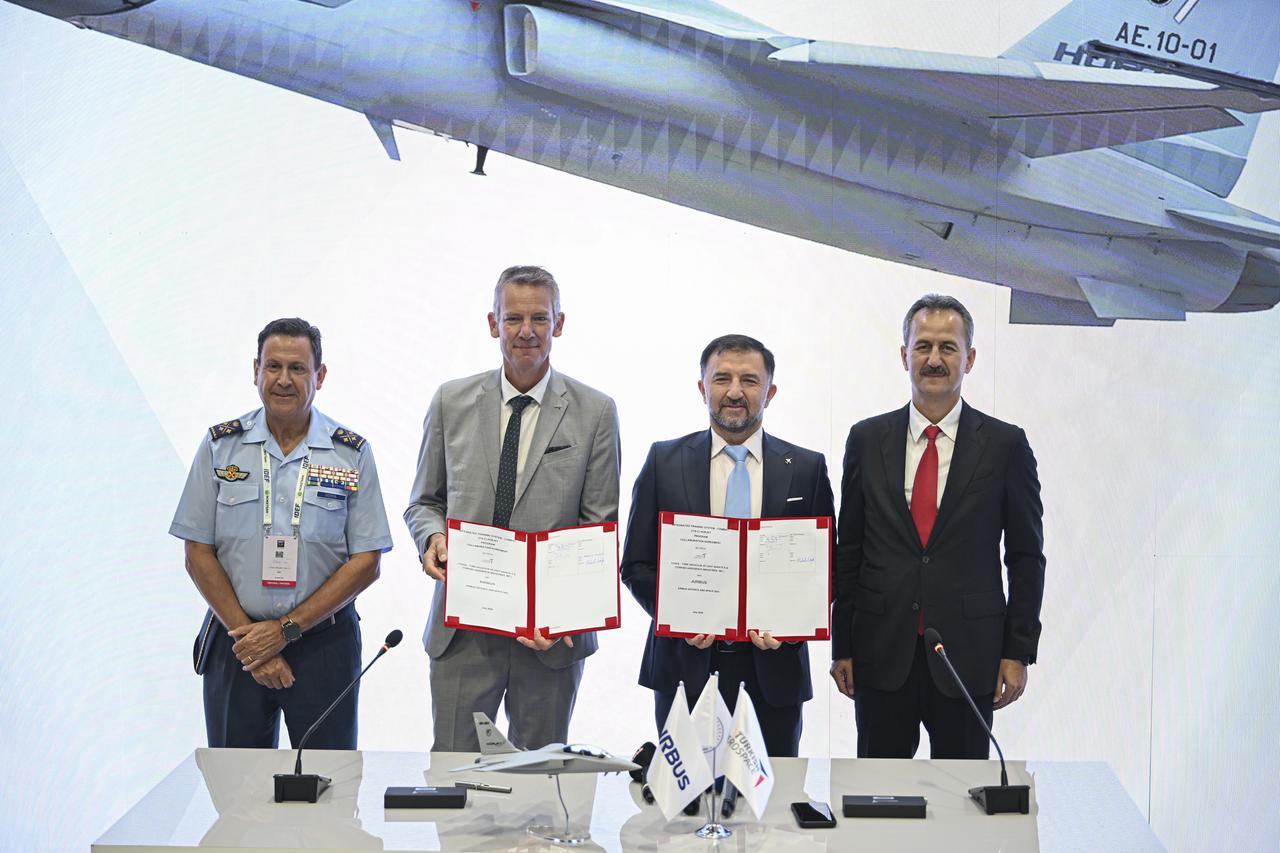
The 17th edition of the IDEF, held simultaneously across several venues in Istanbul, provided the platform for the signing ceremony. It was attended by senior executives from both companies and Haluk Gorgun, head of the Turkish Presidency of Defense Industries.
TAI General Manager Mehmet Demiroglu stated: "This strategic partnership with a global player like Airbus is not just an export success, it is also a testament to the technological level that the Turkish aviation industry has reached worldwide."
Demiroglu said Hurjet's upcoming deployment in Spanish airspace demonstrates the competitive strength of Türkiye’s defense industry.
He noted that Hurjet's upcoming flights over Spanish skies demonstrate the competitive strength of the Turkish defense industry internationally, adding: "We believe that this agreement will further deepen defense industry cooperation between the two countries and pave the way for Turkish engineering to play a greater role in Europe's future aviation projects."
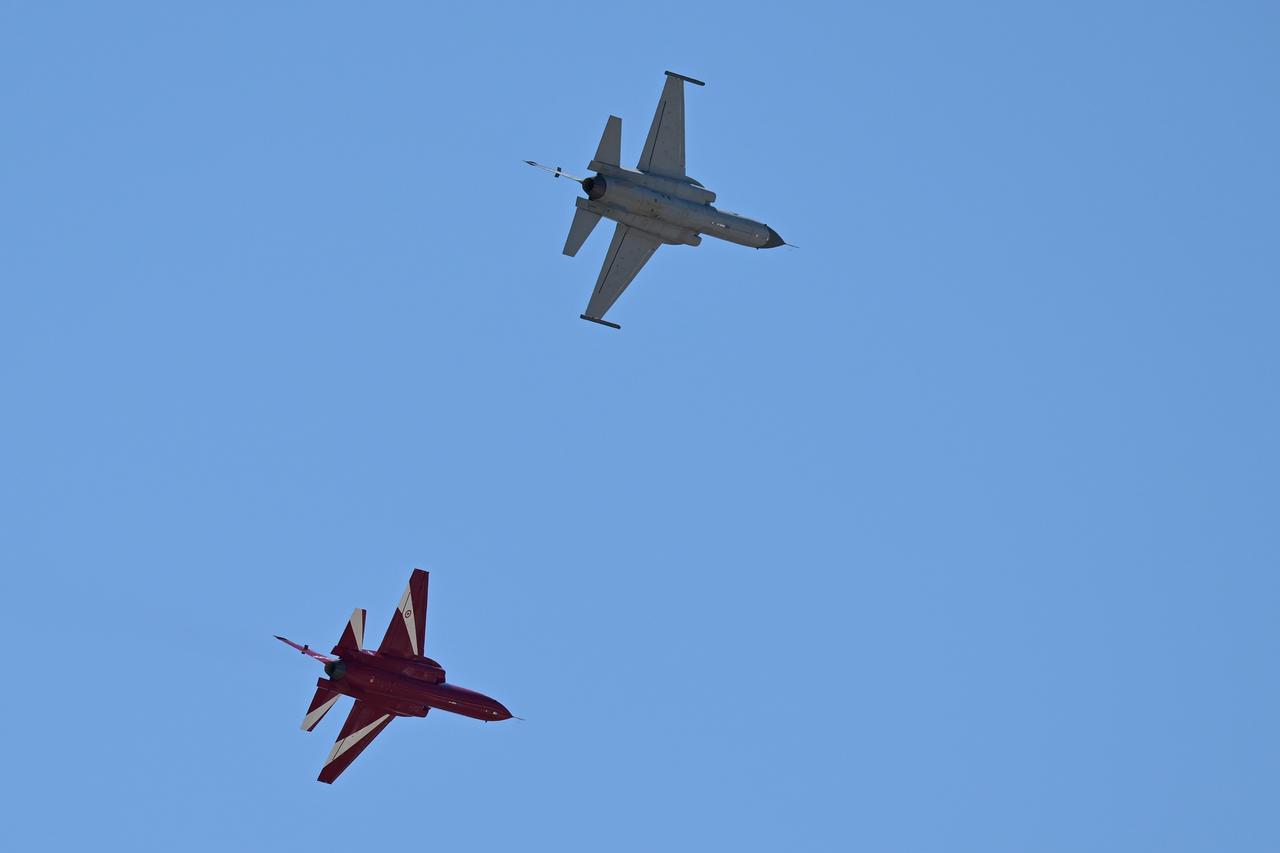
Hurjet is designed as a supersonic advanced jet trainer to prepare pilots for fifth-generation fighter jets. With over 210 test flights completed, Hurjet has reached supersonic speeds and aims for a maximum of Mach 1.4.
The state-of-the-art Hurjet Training 360 System stands out with its connected training architecture, combining an embedded training system with ground-based training systems, elevating Hurjet to a superior level of training efficiency.
Its smart single-engine configuration enables lower fuel consumption, easier and faster maintenance, and reduced use of spare parts.
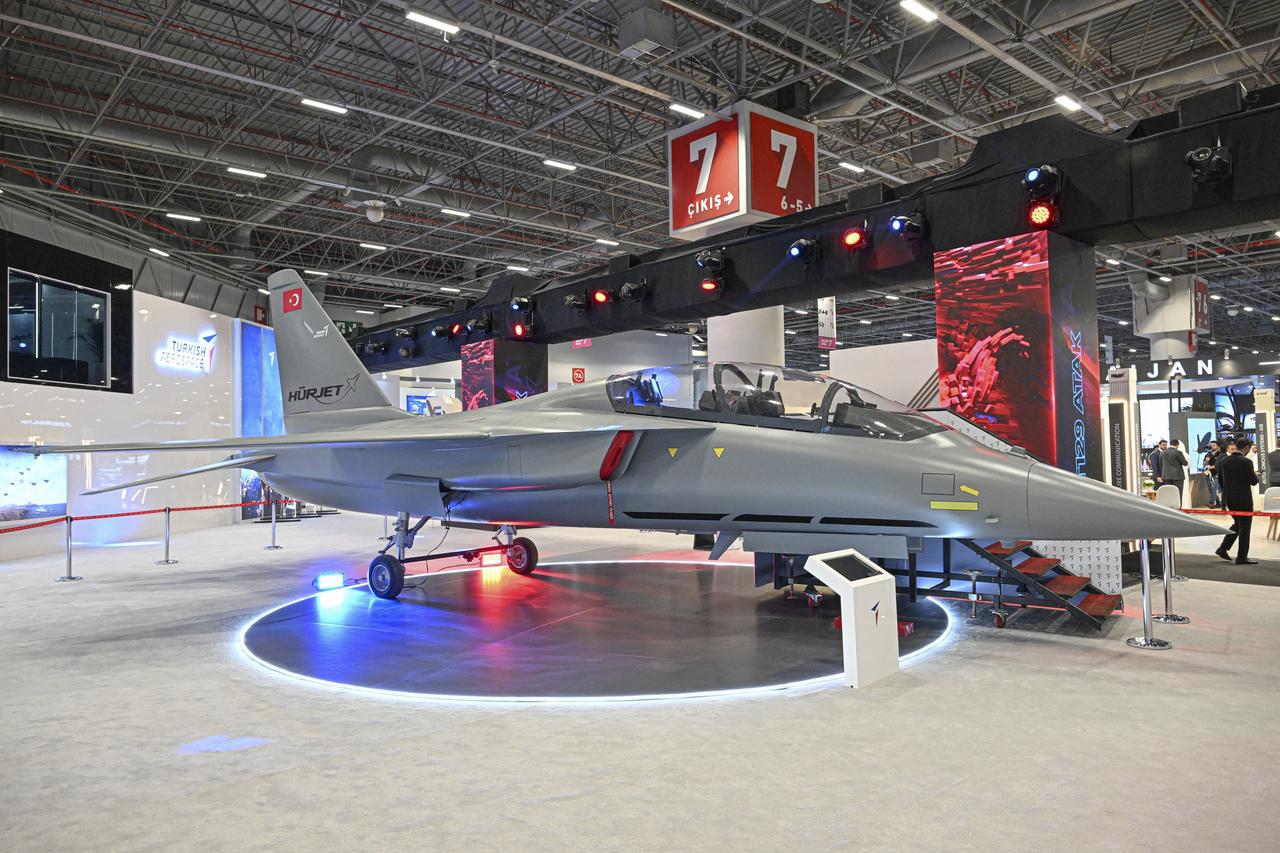
Demiroglu highlighted that Hurjet’s journey toward Spain began with a handshake between President Recep Tayyip Erdogan and the Spanish prime minister in 2024.
"We reached this point through significant efforts from the Defense Industries Presidency, Airbus, TAI, and state officials. This agreement sets the framework for how we’ll cooperate with Airbus in this project," Demiroglu stated.
He added that the procurement agreement with the Spanish Ministry of Defense is expected by September or October 2025.
In a separate development at IDEF 2025, TAI and GE Aerospace signed a memorandum of understanding to strengthen F404 turbofan engine integration and potential future collaborations for the Hurjet program.
The agreement aims to use GE Aerospace F404 turbofan engines in the Hurjet and develop necessary procurement for engine integration. It also seeks to boost cooperation and support from GE Aerospace for flight test activities with new prototypes.
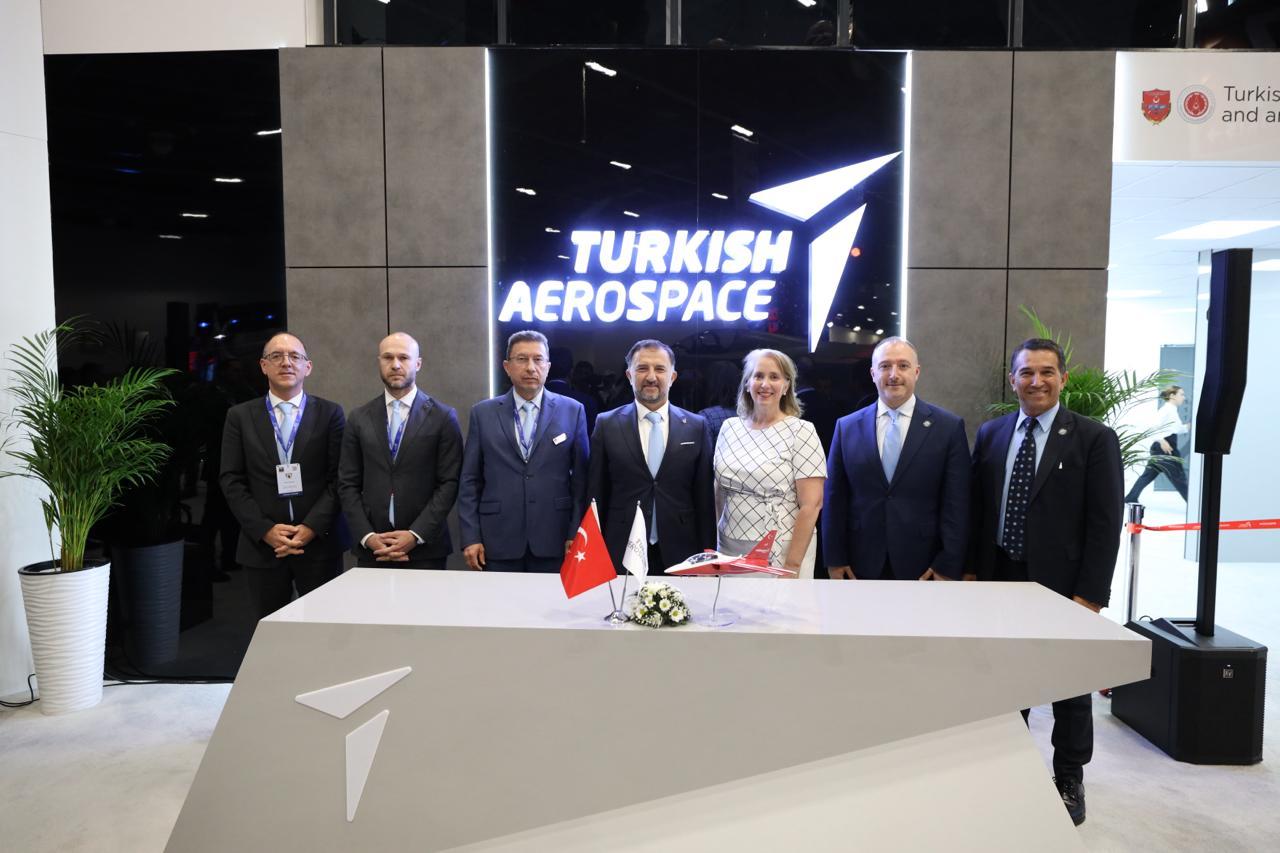
Demiroglu noted that Hurjet is now positioned not only for Spain and Türkiye but also as a potential trainer and light combat aircraft for other NATO allies.
"There are countries among them that we would never expect. I can even say that we missed Malaysia's first phase, but we will work on the second phase. We know it's difficult, but we will work to get the second phase. Indonesia is a serious potential. We think there is serious potential in Gulf countries."
"With a 3-ton payload, it’s an affordable alternative to F-16s. Hurjet is now a platform others want to localize—not the other way around," he concluded.